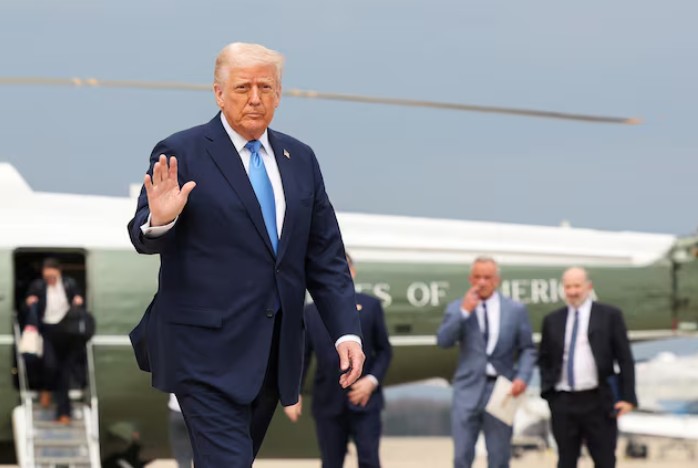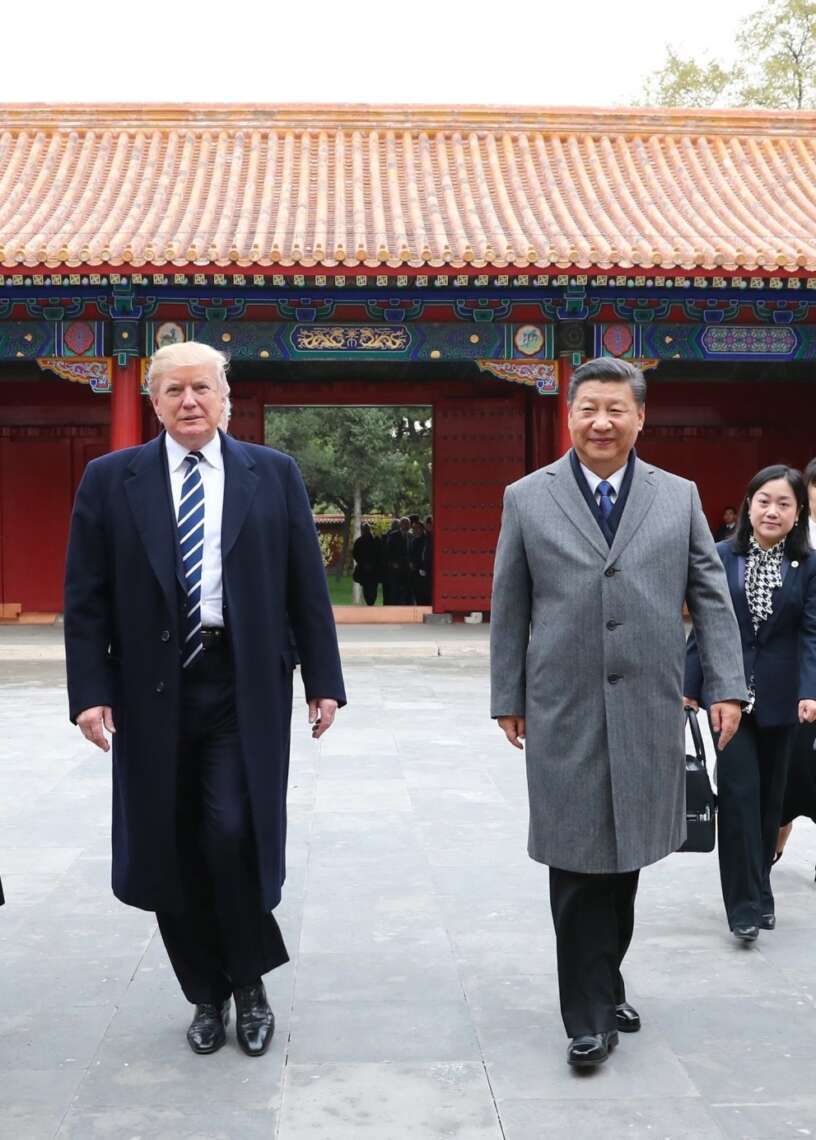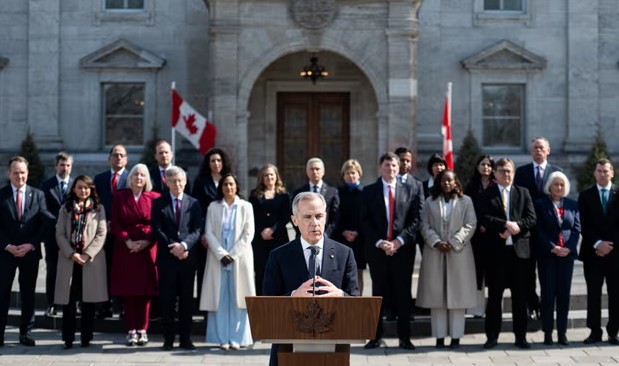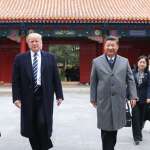US benchmark crude oil shed $2.70 to $64.25 a barrel after major oil producers announced they plan to increase production. Brent crude, the international standard, was down $2.63 at $67.51 a barrel
Shares slid further in Europe and Asia on Friday as markets shuddered while investors counted the potential costs of President Donald Trump’s latest set of tariffs. The future for the S&P 500 lost 0.8% while that for the Dow Jones Industrial Average shed 1%.
Everything from crude oil to Big Tech stocks to the value of the US dollar against other currencies has fallen. Even gold, a traditional safe haven that recently hit record highs, pulled lower after Trump announced his “Liberation Day” set of tariffs,’ which economists say carries the risk of a potentially toxic mix of weakening economic growth and higher inflation.
US benchmark crude oil shed $2.70 to $64.25 a barrel after major oil producers announced they plan to increase production. Brent crude, the international standard, was down $2.63 at $67.51 a barrel.
In European trading, Germany’s DAX lost 2% to 21,289.53 after the country reported factory orders were unchanged in February as manufacturers prepared for steeper duties on their exports. The CAC 40 in Paris slipped 1.6% to 7,478.17 while Britain’s FTSE 100 gave up 1.7% to 8,331.44. Tokyo’s Nikkei 225 lost 2.8% to 33,780.58, while South Korea’s Kospi sank 0.9% to 2,465.42.
The two US allies said they were focused on negotiating lower tariffs with Trump’s administration. Australia’s S&P/ASX 200 dropped 2.4%, closing at 7,667.80.
In other trading early Friday, the US dollar rose to 146.46 Japanese yen from 146.06. The yen is often used as a refuge in uncertain times, while Trump’s policies are meant in part to weaken the dollar to make goods made in the US more price competitive overseas. The euro edged lower, to $1.0976 from $1.1055.
Trump announced a minimum tariff of 10% on global imports, with the tax rate running much higher on products from certain countries like China and those from the European Union. Smaller, poorer countries in Asia were slapped with tariffs as high as 49%.
It’s “plausible” the tariffs altogether, which would rival levels unseen in more than a century, could knock down US economic growth by 2 percentage points this year and raise inflation close to 5%, according to UBS. That’s such a big hit it “makes one’s rational mind regard the possibility of them sticking as low,” according to Bhanu Baweja and other strategists at UBS.
Trump has previously said tariffs could cause “a little disturbance” in the economy and markets. On Thursday he downplayed the impact. “The markets are going to boom, the stock is going to boom and the country is going to boom,” Trump said as he left the White House to fly to Florida.
The S&P 500 sank 4.8% to 5,396.52 and the Dow Jones Industrial Average dropped 4% to 40,545.93. The Nasdaq composite tumbled 6% to 16,550.61. Some of the worst hits walloped smaller US companies, and the Russell 2000 index of smaller stocks dropped 6.6% to pull more than 20% below its record.
Investors knew Trump was going to announce sweeping new tariffs, and fears surrounding it had already pulled Wall Street’s main measure of health, the S&P 500 index, 10% below its all-time high. Some analysts and investors believed Trump might use tariffs simply as a tool for negotiations, rather than as a long-term policy. But he indicated Wednesday that he sees them as a way to bring factory jobs back to the United States, which could take years.
The Federal Reserve could cut interest rates to support the economy, but lower rates can push up inflation, already a worry given that U.S. households are bracing for sharp increases to their bills due to the tariffs. Yields on Treasurys tumbled in part on rising expectations for coming cuts to rates, along with general fear about the health of the US economy. The yield on the 10-year Treasury fell to 4.04% from 4.20% late Wednesday and from roughly 4.80% in January.
A report Thursday said fewer US workers applied for unemployment benefits last week, better than economists were expecting. A separate report said activity for US transportation, finance and other businesses in the services industry grew last month, but by less than forecast.
Trump tariffs send world markets into panic













